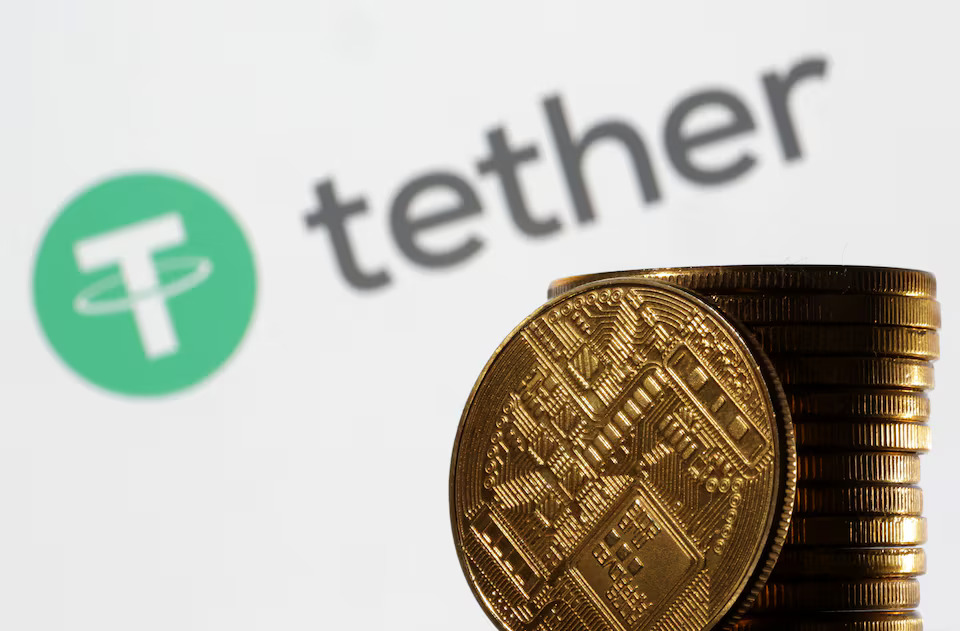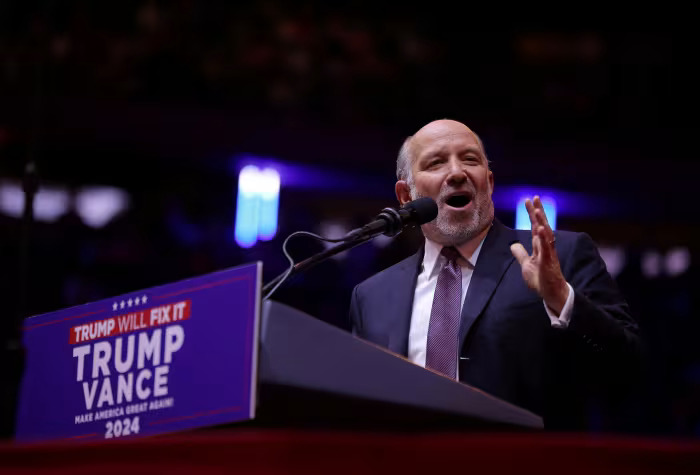
Author: Weilin, PANews
Howard Lutnick, chairman and CEO of Wall Street financial services company Cantor Fitzgerald, was appointed by Trump as the next U.S. Secretary of Commerce on November 20 and is currently awaiting Senate approval. However, this crypto supporter, who was previously known to outsiders to have close ties with the custody business of stablecoin issuer Tether, was exposed that his company Cantor Fitzgerald reached an agreement with Tether last year to invest in Tether and obtain about 5% of its shares.
There are doubts that Lutnick will be able to avoid violating the transition team's own code of ethics, which is consistent with U.S. federal conflict of interest guidelines and requires transition team members to recuse themselves from matters that could directly conflict with their own financial interests or the interests of organizations with which they are involved in business.
According to the latest news, Howard Lutnick said he will resign from Cantor once the Senate confirms his appointment as Commerce Secretary and plans to divest his interests in his company to comply with government ethics regulations.

Wall Street billionaire Howard Lutnick has a dual role
Howard Lutnick was recently nominated as the US Secretary of Commerce, an appointment that has attracted widespread attention and controversy. He is not only the chairman and CEO of Wall Street financial giant Cantor Fitzgerald, but also the co-chairman of Trump's transition team. Lutnick's task is to select 4,000 new appointees for Trump's administration, including antitrust officials, securities lawyers, and national security advisers with global experience. However, he did not completely withdraw from the management of his financial enterprises while on the transition team.
This dual role has raised concerns about conflicts of interest. Max Stier, president of the nonprofit government management organization Partnership for Public Service, said the Trump team's actions "seriously crossed the line." He pointed out: "They have strayed far from the entire process and rules structure, which are established to ensure that future leaders are serving the public interest and not their own private interests."
Critics say Lutnick's companies, including financial services firm Cantor and brokerage firm BGC Group, are involved in almost every industry of the U.S. economy, from health care to technology. Lutnick is chairman of the publicly traded Newmark Group, which provides consulting services to commercial real estate around the world. Cantor and BGC's clients may be affected by a wide range of government policies and regulations, such as Trump's desire to maintain low corporate tax rates and the Food and Drug Administration's (FDA) decisions on new drug approvals. Lutnick has publicly defended stablecoin issuer Tether in the face of questions about its financial soundness.
In addition, Lutnick also relies on the help of lobbyist and fundraiser Jeff Miller. Miller has close ties with Trump's circle and congressional Republicans to assist Tether's affairs in Washington. Since the end of last year, a subsidiary of Lutnick's holding company Cantor Fitzgerald has paid Miller's lobbying firm $300,000. Miller also helps Lutnick establish connections with members of Congress.
Cantor’s “deep cooperation” with Tether sparks controversy
Cantor reached an agreement with Tether, the world's largest stablecoin issuer, last year to invest in Tether and acquire about 5% of its shares. According to the Wall Street Journal, Cantor values these shares at about $600 million. Tether currently holds billions of dollars in U.S. Treasury bonds through Cantor's custody business. According to people familiar with the matter, this custody relationship brings Cantor tens of millions of dollars in revenue each year.
In addition, according to Bloomberg, Cantor is in talks with Tether to seek funds to support its recently announced Bitcoin financing business. Under the plan, Cantor will initially provide investors with $2 billion in Bitcoin mortgage loans and plans to further expand the scale of the project.
After Lutnick was appointed, Cantor's role has become more and more in the spotlight. Lutnick once proudly claimed that Tether allowed Cantor to fully review its funds. However, critics pointed out that this "trust model" is contrary to the "don't trust, verify" philosophy advocated by the crypto industry.
A recent Politico report noted that some “Trump insiders” were concerned about Lutnick’s mixing of personal business interests with government duties. The report said that during a meeting with lawmakers on Capitol Hill, Lutnick’s discussions, which were supposed to focus on the work of the transition government, touched on regulatory issues affecting his business interests, including his relationship with Tether.
Ethics experts have also expressed concerns about Lutnick's potential new role, believing that his Tether background could affect the Trump administration's selection of financial regulators. Richard Painter, an ethics lawyer in the administration of former President George W. Bush, pointed out: "Letting a crypto industry person be responsible for selecting financial regulators is tantamount to inviting trouble."
Competition among stablecoin issuers: USDC may gain more advantages in the regulatory field
On November 24, a Tether spokesperson said: “Tether’s relationship with Cantor Fitzgerald is strictly a professional one, based on the management of reserves. The claim that Howard Lutnick’s participation in the transition team somehow meant influence over regulatory actions is untrue.”
On November 25, Howard Lutnick said that he would resign from Cantor, BGC and Newmark after approval by the Senate. Howard Lutnick is currently the CEO of Cantor. He plans to hand over the company's Tether business relationship to a colleague, and the candidate is said to be his son Brandon Lutnick.
It remains to be seen whether Tether can use Lutnick’s long-standing relationship with Trump to prevent legislation or criminal charges that could favor USDC, or even preserve its assets under Cantor’s management.
Although Tether's market capitalization ($120.1 billion) is much higher than USDC ($34.3 billion), USDC may gain more advantages in the regulatory field, such as becoming the first stablecoin approved by the European Union's Crypto-Asset Market Regulation Act (MiCA) this summer. Tether has criticized MiCA regulations (such as requiring 60% of reserve assets to be deposited in EU banks), believing that these regulations increase risks.
In the United States, Tether is allegedly under regulatory scrutiny for anti-money laundering issues. Compared with Circle, Tether has been questioned for its transparency. Tether has not yet conducted an independent third-party audit of its billions of dollars in fiat currency reserves (mainly U.S. Treasury bonds), while Circle has at least published detailed CUSIP numbers for its reserve assets, which is seen as a step towards transparency.
Currently, there are several stablecoin-related bills in the U.S. Congress, which may be put on the agenda in the post-election "lame duck session" (the period from the election to the opening of the new Congress). These bills may provide advantages for "payment stablecoins", and this wording is generally interpreted as being more favorable to Circle's USDC rather than Tether's USDT.
A Circle executive noted at a congressional hearing in February that “opaque stablecoin issuers” could be exploited by terrorists and illegal organizations. While she did not mention Tether and Cantor by name, another lawmaker was outspoken in criticizing Cantor for providing Tether with access to the U.S. financial system.
In addition, Circle's influence in US politics is growing, and its major donors, such as Fairshake's political action committees, have provided campaign funds for many pro-cryptocurrency lawmakers. If these lawmakers enter Congress, legislation related to USDC may be easier to pass, and Tether may face more scrutiny.
Looking ahead, Lutnick has put Cantor’s relationship with Tether in the spotlight of the public and lawmakers, which could have complex implications for his future role in government. Tether’s dominance in the stablecoin market and the controversy it has caused have also brought more variables to the legislative, regulatory and competitive situation in this field.













